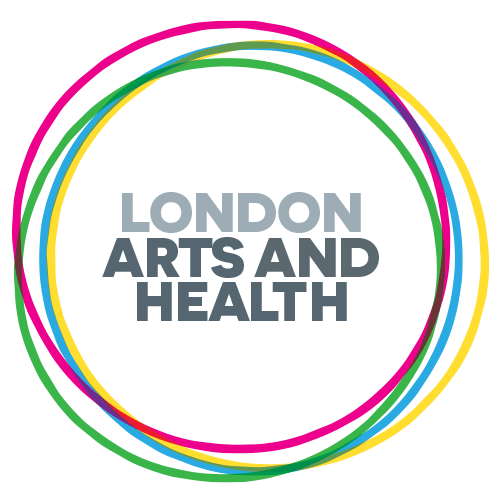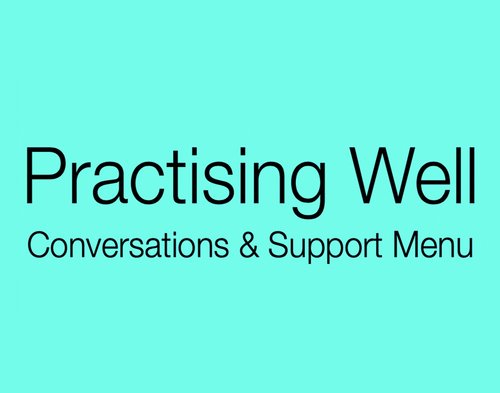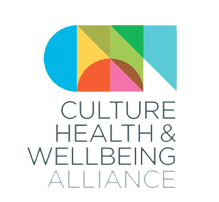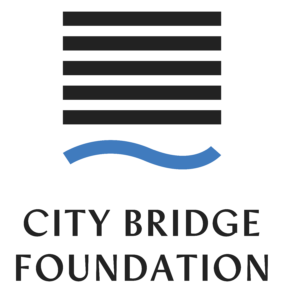Here at LAH we are always looking for well being researchers who want to share their work with us and the world. This week we spoke to Nicola Naismith about her new research, Practising Well: Conversations & Support Menu which explores support for creative practitioners working in participatory arts.
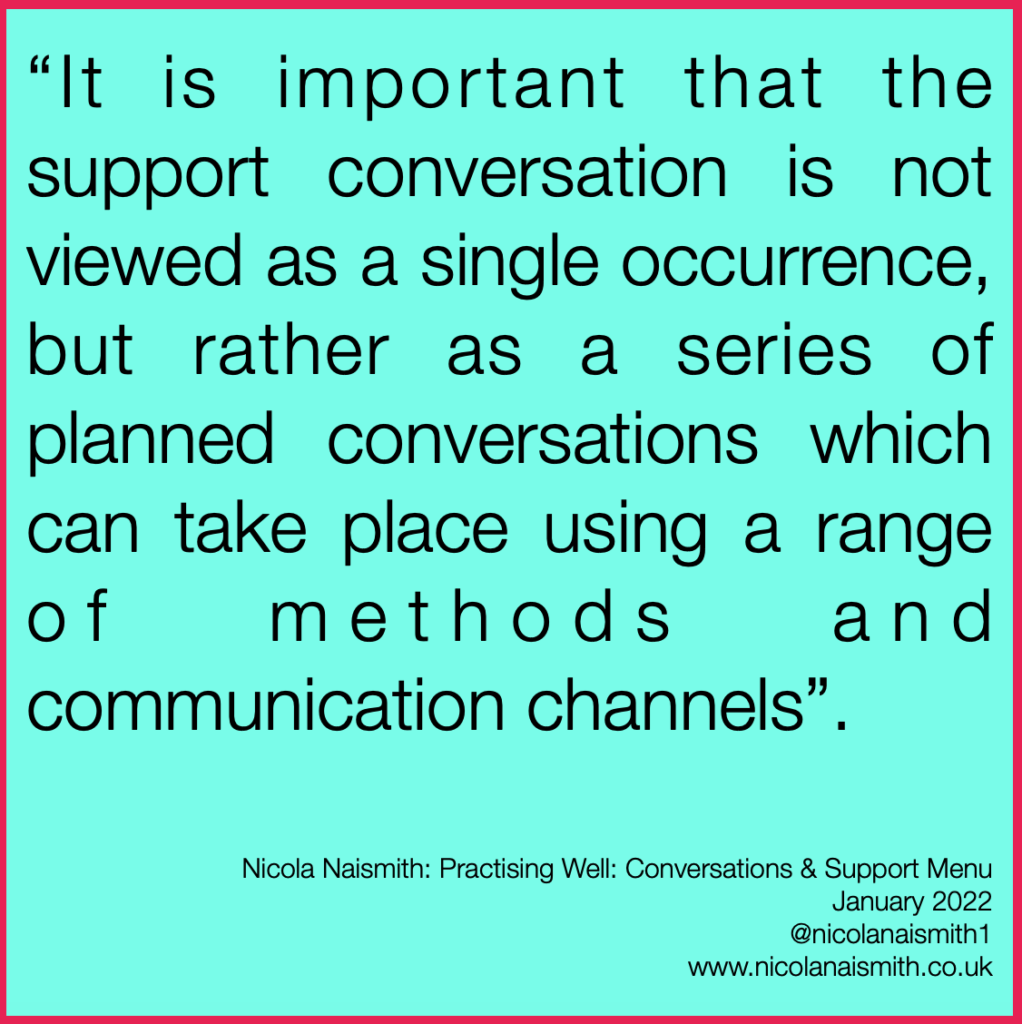 Can you tell us how the report came about and what it contains?
Can you tell us how the report came about and what it contains?
The Practising Well: Conversations & Support Menu is a follow-on research project which builds upon Artists Practising Well, which I published in 2019.
When the All Party Parliamentary Group Report Creative Health was published in 2017 I was doing my Clore Fellowship, and I started to think about the ways in which creative practitioners who were developing and delivering valuable Arts & Health work were being supported, in what can be a demanding field of work. Both research reports, supported by the AHRC via Clore Leadership, therefore explore wellbeing at work for creative practitioners working in participatory arts.
In my new research I explore Wellbeing at Work, Needs and Precarity, Reflective Practice in People-Orientated Professions, and Type and Methods of Affective Support. This led to 8 recommendations framed as ‘doing’ words: Supporting, Promoting, Collaborating, Planning, Learning, Guiding, Evaluating and Developing – each offering guidance to explore, discuss, reflect upon, adapt and implement. My hope i
s that everyone involved in this work – creative practitioners, commissioners, organisations, funders and development agencies – gain a connected sense of what needs to happen to ensure creative practitioners can do what they do best, and be well whilst doing so.
What support do practitioners across the fields of participatory and arts and health need, and what are the main worries they have?
These are questions that anyone working in the field of participatory arts practice needs to be putting to the creative practitioners they work with, as each individual will offer a response based on their individual circumstances and needs.
There are shared experiences which have impacted us all – the COVID-19 Pandemic, the rapidly accelerating climate crisis and the murder of George Floyd – all of which come on top of wide-ranging systemic inequalities around ableism, class and racism which impact access to education, healthcare, housing and fair work. When we consider the complexities of these things (and there are other factors also) it is logical to expect we will all have different needs and preferences.
A key facet of quality work in the participatory arts sector is considering the needs and preferences of the participants we work with. It makes sense to also apply this approach to the support of creative practitioners: we must ask them what they consider they need in order to practice well in such as a way as to invite honest responses – consultation questionnaires or meetings are two methods – but there will also be other approaches.
It is important than opportunities to test and trial different methods of support are available to creative practitioners so they can develop experiential knowledge about what works best for them.
Can you tell us more about the affective support conversation and its relationship to participatory arts?
The most useful approach to having an affective support conversation is to make sure it’s a series of conversations that take place at different points, and in different ways. Support for creative practitioners (and other team members) needs to be costed and embedded at the project inception phase. At planning, delivery and evaluation stages conversations can be had around how a project is going, accompanied by time spent finding out how all team members are feeling about the work.
The pandemic has caused a situation where long-established and carefully developed practices have been re-invented for online or postal delivery – or paused entirely for extended periods of time. Re-starting in-person work will inevitably bring up feelings which need space to be processed: that’s where the types and methods of affective support section of the report can be of help. Consulting about, and offering appropriate support to creative practitioners needs to be embedded within all participatory arts offers.
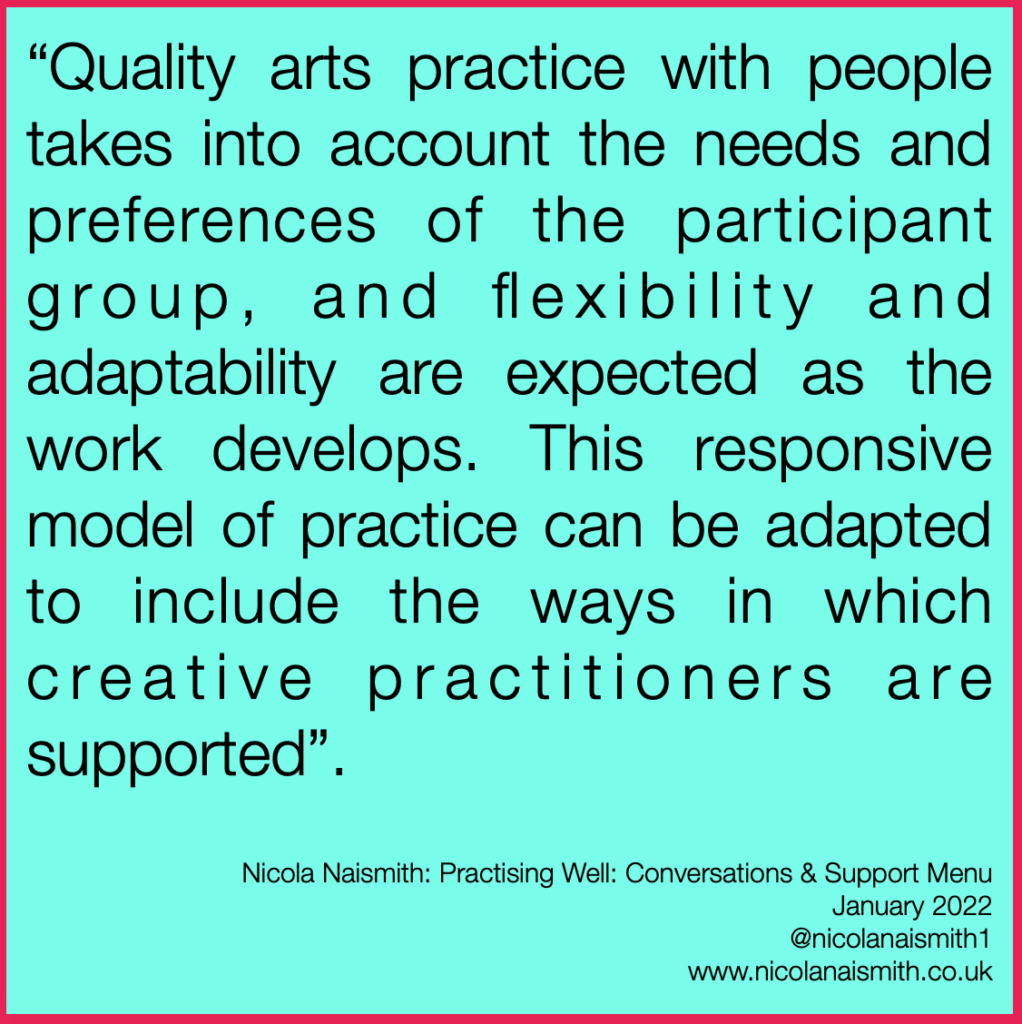
Practitioner support has become more and more important as we see the effects of the pandemic on artists, particularly those working with vulnerable populations. Have you noticed this need becoming more prevalent due to the pandemic?
During the research I was able to draw upon the Culture Health and Wellbeing Alliance Practitioner Support web pages, where they astutely describe how the framework in which participatory arts is now operating has changed: social support has fallen increasingly to civil society, and the ‘frontline’ now includes many people working in arts and culture. Participants bring increasingly complex and vulnerable positions into participatory arts opportunities, which has an impact on both the participant and the creative practitioner.
Participant needs are increasing, and if creative practitioners don’t get access to the support they need then the work becomes unsustainable, and my own research shows this was already the case pre-pandemic. We cannot continue with a situation where participatory arts activities are offered in the spirit of enjoyment, connection and creativity for participants whilst being detrimental for the creative practitioners delivering them.
What do you hope for next with the research, what would you like to see organisations implementing more of for artists and practitioners in particular?
Obviously I would love all arts organisations, funders and development agencies involved in participatory arts to read my report to aid understanding about what creative practitioners are facing, and develop a wider knowledge of what support offers can look like and how to offer them. There is a culture of coping in the arts which urgently needs to be updated by gathering detailed and honest accounts of participatory arts work, in order to reflect, plan and implement positive change.
Nicola Naismith is a visual artist, researcher, coach, mentor and HE Lecturer. She makes work about value, labour, the workplace and wellbeing at work through self-initiated collaborations and by working to commission.
To find out more about Nicola please contact her at info@nicolanaismith.co.uk or you can follow her on twitter or visit her website to access the Practising Well Conversations & Support Menu full report, summary and slides.
